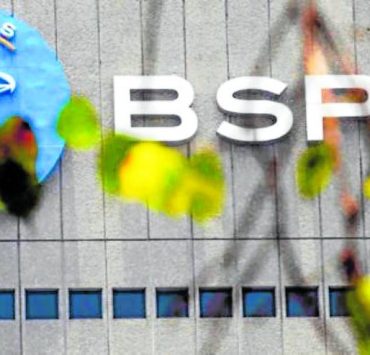An impending ‘omnicide’ (1)

Colombian President Gustavo Petro used the word “omnicide” in his speech at the COP28 held in the United Arab Emirates on Dec. 6 last year.
In essence, Petro was advocating for a Fossil Fuel Non-Proliferation Treaty across the globe, saying that the intense use of fossil fuels (natural gas, coal, oil, among others) has driven global temperatures to almost feverish levels that can spell the eventual death of all living things on earth by the end of this century, or even earlier.
Petro cited the case of Tuvalu, a thinly populated island nation of nine atolls in the Pacific Ocean with the highest elevation of about three meters above sea level. These islands are under threat of sinking due to the rising sea levels associated with global warming, which in turn is due to intense human utilization of fossil fuels. When this happens, Petro noted, it will mean the death of not only a people but their culture and heritage, as well as of all the living things in their small island paradise that will soon disappear from the world map—if and when global warming could not be stopped.
This is what Petro calls omnicide: “It means the death of all living things, the interconnected extinction of everything that exists; it’s a homicide of the life force of the planet.”
Petro also pitched, in signing a global treaty, to compel and bind countries that are accelerating efforts toward more intensive fossil fuels exploration. This is consistent with the international movement We Don’t Have Time, led by environmental health advocates in several parts of the world, calling for the signing of an international treaty that will lead to a binding agreement among wealthy, fossil fuel-producing countries to gradually lessen the production of fossil fuels. Alternatively, they are pushing for a fast, effective, efficient, and just transition to more renewable energy sources that will have little or negligible impact the environment.
Last Sunday, April 7, was World Health Day. It commemorates the first International Health Assembly in 1948, although the celebration was started in 1950. This annual celebration has aimed “to create awareness of a specific health theme to highlight a priority area of concern for the World Health Organization (WHO).” This year, the theme was “My health, my right.”
The WHO has noted how the right to health of millions of people is already reaching threatening proportions, saying that “diseases and disasters loom large as causes of death and disability.”
It added: “This year’s theme was chosen to champion the right of everyone, everywhere to have access to quality health services, education, and information, as well as safe drinking water, clean air, good nutrition, quality housing, decent working and environmental conditions, and freedom from discrimination.”
The We Don’t Have Time movement also issued a statement on the interconnection between climate change and health, citing some statistics on the number of people who are living in areas “highly susceptible to climate change.” It estimated that there are about 3.6 billion people around the world who are vulnerable and that, from 2030 to 2050, “climate change is expected to cause around 250,000 deaths per year, from undernutrition, malaria, diarrhea, and heat stress alone.” This does not include the deadly effects of air pollution, which is the case in crowded cities in different parts of the world like New Delhi, and here in the Philippines, particularly cities in the Metro Manila area.
Right now, everywhere in the country, the common complaint aside from the never-ending increase in prices of basic commodities is the rising temperature, especially over the last two or three weeks. We are reeling from living under feverish temperatures of 37 degrees Celsius to convulsive levels of 42-45 degrees Celsius. In-person classes in both basic and higher education levels have been suspended indefinitely to avert a massive outbreak of heatstroke and its serious consequences on students’ health.
At least the Department of Education and the Commission on Higher Education have realized that climate change events like droughts have serious impacts on health, especially the health of our young students—our hope for the future.
(More next week)


















